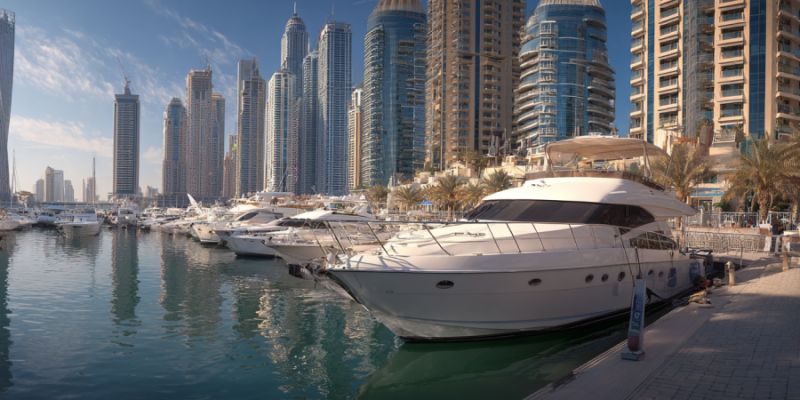Boat registration in Dubai is a lot like the tides here — constant, sometimes overlooked, but impossible to ignore if you actually want to be on the water. The rule is simple: if it floats and you plan to use it, it needs to be registered. The Dubai Maritime City Authority (DMCA) makes sure of that. They’re not doing it to give you extra paperwork; they’re doing it because crowded marinas, high-speed jet skis, and commercial ferries all share the same waters, and without rules, chaos would take over fast.
When you go through the process — whether it’s for yacht registration in the UAE, a family speedboat, or even a fishing craft — you’re not just ticking boxes. You are proving that your boat is safe, insured, and legally recognized. And that recognition is important. It protects you in the event of an accident, reassures your passengers, and demonstrates to investors or charter clients that you take business seriously. To register a boat in Dubai is to participate in a system designed to keep the marine community safe, credible, and sustainable in a city where the sea is as important as the skyline.
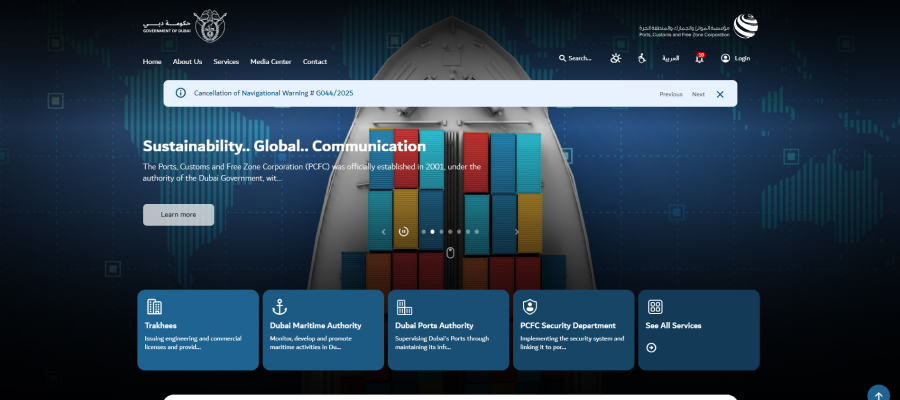
Authorities & Legal Foundations for Boat Registration in Dubai
Every boat in Dubai, whether it’s a weekend jet ski or a 40-meter yacht, has to play by the same rules: no registration, no water time. That rule didn’t appear out of nowhere. It’s backed by a set of authorities that watch over the coastline, each with its own piece of the puzzle. To register a boat in Dubai is to step into that system — and once you see how it’s built, it makes sense why they don’t let anything slip through.
Dubai Maritime City Authority (DMCA)
DMCA is the name you’ll hear first, and for good reason. Since 2007, it’s been the body shaping Dubai’s marine rules. They don’t just hand out boat licenses; they set the standards for inspections, they decide what documents prove ownership, and they control the portals where you apply. Walk into a DMCA “Happiness Center” and you’ll see families with jet skis, companies registering ferries, and yacht captains waiting on paperwork — all in the same queue. The process is digital now, but the idea is the same: DMCA is the hub.
Ministry of Energy & Infrastructure (MOEI)
Beyond Dubai’s shoreline, the Ministry of Energy & Infrastructure steps in. They deal with federal standards — things like environmental compliance, vessel safety codes, and registrations that link into other emirates. If you’re chasing yacht registration in the UAE because you plan to sail further than Dubai Marina, this ministry is part of your story too.
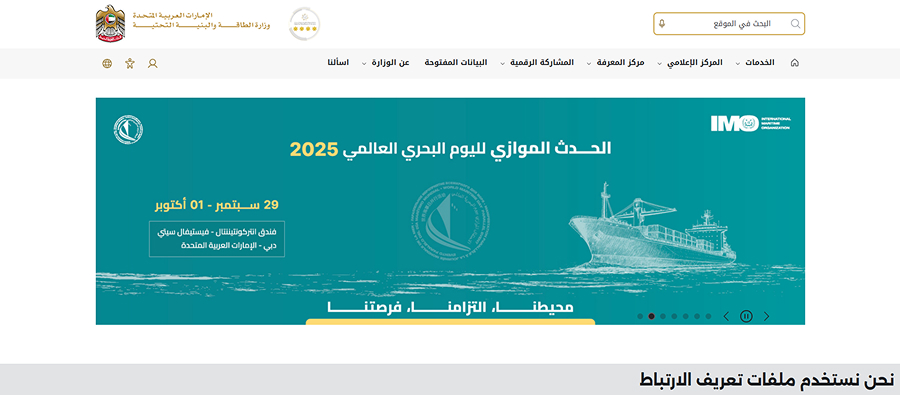
The Coast Guard and Other Partners
The Coast Guard is another group that enforces rules on the water. They make sure that larger yachts have safety transponders, that commercial boats stay on approved routes, and that crews meet safe manning requirements. The Road and Transport Authority (RTA) approves routes for abras and ferries, which adds another level of safety for commercial ships. Even insurance companies and radio regulators appear on the list — because a registered boat in Dubai isn’t just about floating; it’s about being safe, covered, and reachable.
At first it can feel like too much bureaucracy. But look at the bigger picture: Dubai’s coastline is crowded, valuable, and international. These layers of oversight keep order, make sure every operator is insured, and prevent accidents that could tarnish the city’s reputation. To obtain a boat license in Dubai is not just to own a piece of paper. It’s a handshake with this system — proof that your craft, whether small or massive, is ready to share the water responsibly.
Categories of Marine Crafts in Dubai
There are different rules for each boat. There are different rules for a jet ski ripping through the waves, a family yacht docked in the Marina, and a ferry taking people across the Creek. The Dubai Maritime City Authority (DMCA) has taken care of this by grouping ships into three main groups. First, you need to know what kind of boat you have. Only then can you register it in Dubai. Incorrectly classify your ship, and the process could take months.
Pleasure Water Sport Marine Crafts
These are the toys built for speed and adrenaline — jet skis, small speedboats, and other water sports crafts. On the surface, they look simple to own: buy it, launch it, ride it. But the city demands more. To obtain a boat license in Dubai for one of these, you’ll need to prove ownership with invoices or builder documents, show customs clearance if it’s imported, and then pass a technical inspection. After that comes insurance and registration of the trailer if you plan to move it around. It might sound tedious, but these are the crafts most likely to collide, capsize, or get stolen, so the paperwork acts as protection.
Pleasure Marine Crafts
Now we move to the lifestyle vessels: yachts, sailing boats, and leisure cruisers. These carry higher expectations. Along with the standard documents, owners may need to show proof of income or a trade license in Dubai, plus technical extras like a VHF radio certificate for boats longer than 35 feet. Larger yachts (over 24 meters) bring even more — a UAE Yacht Code certificate and stability booklets to prove they can safely carry a crowd. If you want yacht registration in the UAE, expect the Coast Guard to step in here too, checking for safety and security transponders. It’s not bureaucracy for the sake of it; it’s how Dubai keeps hundreds of yachts safe when they all head out at once.
Commercial Marine Crafts
The third group is about business, not fun. Ferries, water taxis, floating restaurants, tourist boats, and cargo vessels all live here. Registering them involves more than DMCA alone. The Road & Transport Authority (RTA) issues no-objection certificates and approves service routes. For boats over 12 meters, a GCC certificate is required, and for those over 24 meters, classification society documents come into play. Inspections are stricter, insurance is heavier, and reporting obligations keep going after registration. Anyone looking to obtain a marine craft license in Dubai for commercial purposes needs to prepare for this higher bar.
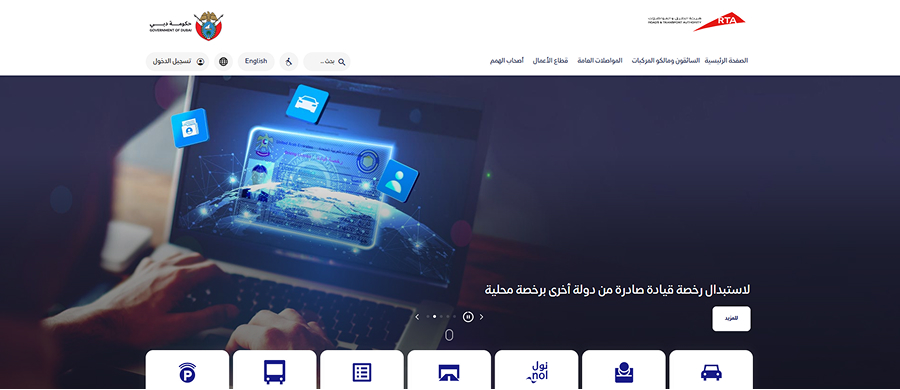
Step-by-Step Registration Process: How to Register a Boat in Dubai
When you first look at the forms and requirements for registration, it seems like a lot of work. But in reality, it follows a pattern. There are two steps: first, you have to show that the boat is real, yours, and safe to sail. Then, you have to show that it is safe, insured, and allowed to sail in Dubai waters. Whether you’re chasing yacht registration in the UAE or licensing a jet ski, you’ll pass through the same structure — only the details change depending on your category.
Stage One: Documents and Technical Inspection
This is the foundation. You walk into a DMCA Happiness Center or log into the Smart App and begin by presenting who you are and what you own.
For every applicant, core documents include:
- Emirates ID and passport copy (for residents)
- Residence visa copy (for non-residents)
- Proof of ownership (original invoice, sales deed, or builder’s certificate)
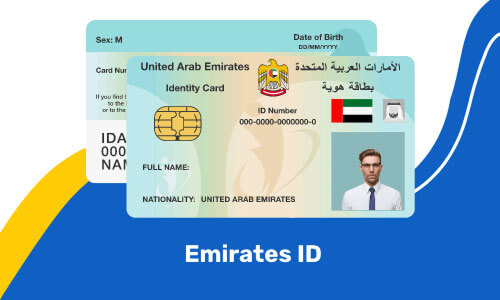
Then it branches out:
- New marine crafts: builder manual and invoice.
- Previously registered crafts: cancellation certificate and sales deed.
- Imported crafts: customs clearance plus an environmental certificate from ESMA.
- Financed crafts: mortgage deed agreement.
After the paperwork is turned in, the boat has to pass a technical check. Safety gear, environmental standards, seaworthiness, and the condition of the engine are all checked. Inspections are often put off because there aren't enough fire extinguishers or the equipment is out of date. Without this certificate, you cannot move to the second stage.

Want to learn more about UAE business setup services?
Stage Two: Insurance and Safety Requirements
Pass the inspection, and DMCA wants proof you’re covered. This means uploading valid insurance certificates (12–13 months) into the Smart App or portal. The policy must match the vessel’s category and passenger capacity. For trailered boats, you also register the trailer. For larger vessels, a one-year contract with a recognized Dubai marine club is required.
Different categories bring their own twists:
- Pleasure water sport crafts (jet skis, speedboats): relatively light, but still require inspection and insurance. Because these are high-risk, proof of coverage is non-negotiable.
- Pleasure marine crafts (yachts, leisure cruisers): additional obligations appear. Yachts over 35 feet need a VHF radio installation certificate. Those carrying more than 12 passengers need a stability booklet. Yachts longer than 24 meters require a UAE Yacht Code certificate. Larger yachts must also install safety and security transponders approved by the Coast Guard, and present that installation certificate to DMCA.
- Commercial marine crafts (ferries, floating restaurants, cargo boats): the heaviest requirements of all. Beyond DMCA inspection and insurance, operators must present a no-objection certificate and route details from the RTA. For non-wooden vessels above 12 meters, a GCC certificate is mandatory; for anything above 24 meters, classification society documents are added.
License Issuance
After documents, inspection, and insurance checks are complete, DMCA processes the license. Owners receive an electronic copy through the portal and can request physical delivery or pick it up at a Happiness Center. Along with the license comes a Safe Manning Certificate for commercial and water sport vessels, which certifies minimum crew requirements. Both documents are valid for one year.
It might seem like unnecessary red tape to have to submit everything separately. But the split makes sure that no ship gets a license without first passing an inspection. Only after the craft proves seaworthiness does the system move on to insurance and safety add-ons. For anyone planning to register a boat in Dubai, this two-stage structure forces discipline: owners fix problems early, insurers know what they’re covering, and regulators have a full picture before issuing a license.
Document Requirements by Category: What You’ll Need in Hand
Paperwork is nobody’s favorite part of owning a boat, but in Dubai, it decides how quickly you can get on the water. The basics are simple enough — proof of who you are, proof of what you own — but once you look closer, each type of craft comes with its own quirks. Miss even one piece, and the inspector will politely send you back to your folder.
It’s easy to grumble about the stack of documents, but each one has a reason. The VHF certificate isn’t just red tape — it’s what lets the Coast Guard find you if something goes wrong. The GCC certificate proves your vessel was built to survive heavy use. The income requirement for yachts ensures the boat won’t end up neglected and unsafe in a marina. To register a boat in Dubai, you’re not just convincing DMCA you own the vessel — you’re proving you can maintain it, insure it, and keep it safe for everyone who shares the water.
Here’s how it really plays out.
Pleasure Water Sport Crafts
If your weekends revolve around speedboats or jet skis, your checklist is lighter, but not optional. If you are a non-resident, you will need to bring your Emirates ID, a copy of your passport, and a visa.
- Is there a new craft? Show the builder's manual or invoice.
- Considering purchasing secondhand? The DMCA requires the cancellation of the previous registration and the sales deed.
- Importing? Customs clearance and an environmental certificate from ESMA are required.
- Is there any financial involvement? Also included is a mortgage deed.
Once the papers are stacked right, you head for a technical inspection — the moment where an inspector decides whether your craft is actually fit to hit the surf.
Pleasure Marine Crafts
Now we’re talking about yachts and leisure boats — the pride of Dubai Marina. The standard documents apply, but DMCA asks for a little more proof that you can handle the responsibility. As a private owner, you must show that you have the money: either proof of at least 20,000 AED a month in income, a Dubai business license, or proof that you own the property.
Without a VHF radio certificate, boats longer than 35 feet can't go out to sea and be quiet. More than 12 people on board? A stability booklet is what you'll need. Yachts longer than 24 meters must also carry a UAE Yacht Code certificate. On top of that, the Coast Guard steps in for the big ones, demanding safety and security transponders, with an installation certificate filed back to DMCA.
Commercial Marine Crafts
Running a ferry, cargo vessel, or floating restaurant? Expect the thickest file. You’ll need all the basic documents plus a no-objection certificate from the Roads & Transport Authority spelling out your route, service dates, and operating speed.
Commercial operators are also tied to stricter inspections, because these boats carry passengers and cargo. Regulators want proof that your business is not only legitimate but also safe enough to represent Dubai on the water.
Costs, Fees & Payment Channels: What Boat Registration in Dubai Costs
Owning a boat in Dubai is glamorous; paying for the paperwork is not. Still, the fees are part of the deal, and it helps to know them before you’re standing at the counter or staring at the payment screen. The good news is that most charges are transparent and fixed, but they do vary by vessel size, category, and even by who owns the craft.
Fees for Residents and Non-Residents
The simplest fee is the DMCA service charge: 120 AED to issue the license. Beyond that comes the technical inspection, ranging from 220 AED for smaller personal craft up to 820 AED for larger vessels. Inspections carried out outside Dubai can reach 2,020 AED, making local inspections the smarter choice.
For UAE nationals, costs tie directly to tonnage: 4.5 AED per ton annually, with a minimum of 100 AED and a ceiling of 10,000 AED. There’s also an additional 2 AED per ton annual tax, with a 20 AED minimum. Foreign owners pay differently — registration is based on payload, multiplied by 6.5 AED, with a minimum charge of 500 AED. In practice, that makes foreign-owned boats more expensive to register, a reflection of Dubai’s policies that favor local ownership.
Payment Methods and Channels
Dubai makes paying the fees fairly painless. Owners can use credit cards, Apple Pay, Samsung Pay, Google Pay, or bank transfers through the MOEI and DMCA payment gateways. For those who prefer face-to-face service, Happiness Centers process payments during office hours. But most boat owners now go digital, using the DMCA Smart App to upload documents, track inspections, and pay anytime, day or night.
So while the romance of sailing past the Burj Al Arab feels priceless, the paperwork is not. To register a boat in Dubai means budgeting not just for docking and fuel but also for the steady rhythm of inspection costs, annual fees, and insurance that keep you in the legal clear.
Validity, Renewal & Ongoing Obligations for Boat Registration in Dubai
Obtaining a license is the first victory; keeping it alive is another task. In Dubai, once you register a boat, the license lasts for one year. After that, you either renew on time or risk drifting into fines and grounding notices. There’s no grace in ignoring it; the system is strict because the waters are crowded and valuable.
Renewal itself isn’t hard, but it demands attention. You’ll be asked for updated insurance (at least 12 months of cover), and if your vessel is older or commercial, another technical inspection might be booked. It’s their way of making sure your boat hasn’t turned into a floating hazard while sitting at the marina. Change of ownership? Mortgage adjustments? Those need to be filed, too.
Some vessels carry an extra responsibility: the Safe Manning Certificate. It sets the minimum crew you must have on board — a safety net against overconfidence. Like the main license, it expires after a year, and forgetting it can leave you technically illegal even if your registration is current.
Living with a license also means living with ongoing obligations. Fire extinguishers must be valid, VHF radios on bigger yachts need to work, and any modifications — even “minor” ones — are expected to be reported. To keep yacht registration in the UAE clean, you need to treat compliance as part of boat ownership, not a side chore.
In the end, renewal isn’t just bureaucracy. It’s the system’s way of asking: Are you still safe? Are you still prepared? Answer yes, and your access to Dubai’s waters stays uninterrupted. Answer no, and the sea will have to wait for you.
Challenges & Common Pitfalls: Where Applicants Often Go Wrong
On paper, registering a boat looks simple. In practice, the process trips people up in the same predictable ways. If you want to register a boat in Dubai without losing weeks of your life, watch out for these snags:
- Paperwork that doesn’t add up. It’s amazing how many people bring half-complete files — a passport copy missing, an invoice without a stamp, customs clearance “on the way.” DMCA doesn’t play along. If something’s missing, your file is frozen until you fix it.
- Inspections that turn into wake-up calls. Owners show up assuming their boat is fine, then fail because of expired fire extinguishers, broken lights, or worn lifejackets. Inspectors don’t care that you “never use” the gear — they care that it works when it’s needed.
- Forgetting the real cost. Everyone remembers the 120 AED license fee. Fewer remember inspections (220–820 AED), insurance, or tonnage-based charges. And foreigners often discover their fees are higher. Budgeting badly is a fast way to stall.
- Picking the wrong box. Call a charter yacht “private” and you’ll hit a wall. Register a small tour boat as “leisure” and the RTA will bounce you. Categories exist for a reason, and DMCA checks carefully.
- Renewals that slip your mind. The license lasts one year. Miss the deadline and you’re not just fined — your boat is technically grounded until you fix it.
- Overlooking the extras. VHF certificates, Safe Manning Certificates, GCC codes — they sound like side notes, but forget them and your registration never makes it past review.
Most of these aren’t dramatic failures. They’re small oversights, born of rushing. To obtain a boat license in Dubai is to accept that details matter. If you slow down, prep your file properly, and walk into DMCA with everything in hand, the process moves. If not, you’ll be the one pacing the marina, watching other boats head out while yours sits tied up, waiting on paperwork.
Strategic Advice for Boat Registration in Dubai
Here’s the thing about boat registration in Dubai: the system itself isn’t broken — but it punishes people who walk in unprepared. If your folder is missing even one document, you’re done for the day. So build that file early, make copies, and keep them digital too. You’ll thank yourself when the inspector asks for something obscure like a customs clearance or mortgage deed.
Inspections aren’t a formality; they’re the moment your boat proves it belongs on the water. Don’t show up with expired flares or broken nav lights and expect a smile. Fix the little stuff first, or you’ll be sent back to the dock.
When it comes to add-ons like VHF radios or Coast Guard transponders, don’t chase bargains. DMCA only accepts installation certificates from approved suppliers. Buy cheap, and you’ll pay twice.
And if your craft isn’t simple — maybe it’s a ferry, a charter yacht, or a floating restaurant — hire someone who knows the ropes. Experienced agents can save you months of back-and-forth with RTA and DMCA. The best way to register a boat in Dubai is to prepare, follow the rules, and seek help when needed.
Conclusion
When you register a boat in Dubai, you're not just checking a box; you're demonstrating that your vessel, crew, and sense of responsibility belong in these waters. The DMCA created this system to filter out the careless, and this is why the license you hold is important. It means your documents are in order, your boat has passed inspection, your insurance is up to date, and the authorities trust you to coexist peacefully with ferries, jet skis, and superyachts.
Yes, the process can test your patience — two stages of paperwork, inspections that catch every flaw, fees that pile higher than you expect. But that’s the price of credibility. That license will tell passengers you’re safe, investors you’re serious, and regulators you’re ready. In a city where the sea is as iconic as the skyline, securing yacht registration in the UAE is to anchor yourself in Dubai’s future as a true maritime hub.
